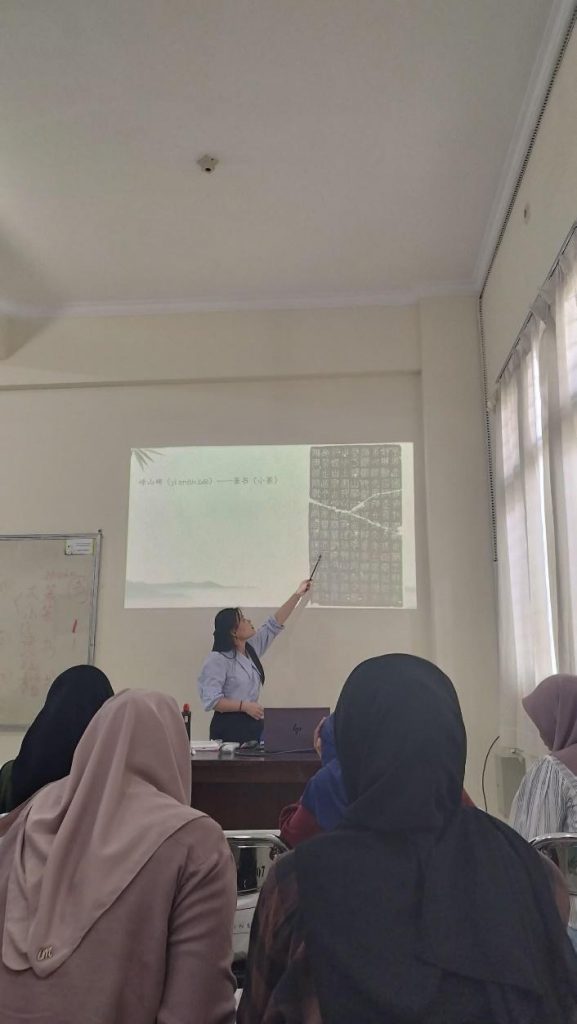
The Role of Chinese Culture in Promoting International Peace and Cooperation
Department of Mandarin
Hanna Widi Krisjayanti Lunmisay
November 20, 2024
Learning and Students
SDG 16
The study of Chinese culture is an important endeavor to understand the rich history, traditions, and values that have been part of world civilization for thousands of years. By exploring various aspects such as art, language, philosophy, customs, and traditional festivals, students can broaden their horizons about this unique and complex cultural heritage. State University of Malang students are learning about the vibrant and diverse Chinese culture. And the one who explained this Chinese cultural learning was Chen Xiao Dan from Guangxi Normal University.
The study of Chinese culture is an important endeavor to understand the rich history, traditions, and values that have been part of world civilization for thousands of years. By exploring various aspects such as art, language, philosophy, customs, and traditional festivals, students can broaden their horizons about this unique and complex cultural heritage. By studying Chinese culture, it is hoped to create a deeper appreciation of global cultural diversity and strengthen respectful cross-cultural relationships.
Learning Chinese culture at the State University of Malang (UM) is essential in developing students’ global insights, especially in understanding the diversity of world cultures. With a rich background in Chinese history and civilization, this program is designed to provide a deep understanding of various aspects of Chinese culture, from philosophy, art, language, and literature to social traditions. The learning is theoretical and involves practical activities such as calligraphy workshops, traditional dance, Chinese music, and discussions on the teachings of Confucianism, Taoism, and Buddhism, which are the foundation of Chinese cultural values.
In addition, the State University of Malang also often collaborates with educational institutions in China to present guest lecturers or cultural exchange programs so that students can experience learning directly from cultural experts. Students are also encouraged to attend international seminars, study classical Chinese literature, and understand the influence of Chinese culture in today’s global development. With this approach, it is hoped that students will not only know Chinese culture academically but also be able to appreciate the universal values contained in the culture while making it an inspiration to enrich their understanding of Indonesian local culture.